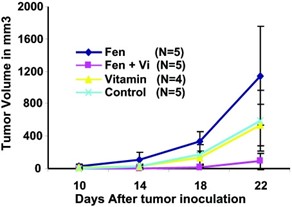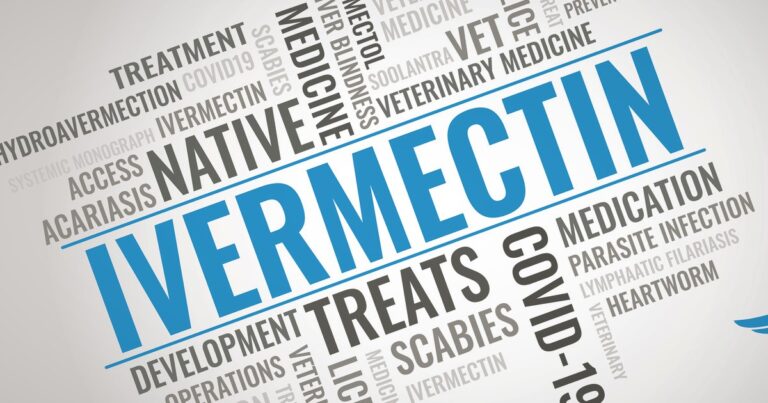If you have pets, you’ve probably heard of Fenbendazole. Fenbendazole is an anti-parasite and anti-worm medication used in animals. It is a common veterinary medication. This medication is primarily used to kill worms such as hookworms, roundworms, tapeworms, parasites, and whipworms.
So, what does this drug have to do with cancer treatment? Numerous studies show that this drug is capable of much more. It can:
- Destroy cancer cells
- Interrupt the sugar uptake in these particular cells
- Help with drug resistance caused by cancer
- Reduce the size of a tumor.
We will place emphasis on one specific study conducted in 2008. We will go over this medication in depth. What makes it so good, and does it really have the potential benefits that studies claim? Let’s take a closer look at the commonly overlooked drug Fenbendazole.
Why Are Vitamins Important for an Effective Cancer Treatment with Fenbendazole?
Fenbendazole has always been the drug of choice for treating rodent pinworm. It is simple to use and has no harmful side effects. Pinworms are a common problem in facilities where there are a lot of rodents.
Fenbendazole was used as part of a diet in this study due to its safety. There are very few side effects. However, the drug revealed unexpectedly positive results.
The researchers used xenografts to test the drug’s effects on cancer cells. These are cancer cells implanted in animals for testing. They were tested on mice. Cancer cells did not grow, according to statistics. The main reason was the Fenbendazole.
- Mice received a pre-treatment of Fenbendazole, which proved effective for preventing tumor growth.
Fenbendazole demonstrated potent anti-tumor properties when combined with vitamin supplements. The vitamins studied in this study were E, B, D, K, and A. These vitamins are all well-known for their antioxidant properties.
In animal studies, statistics show that Vitamin E has effective anti and anti-tumor effects. This vitamin’s primary function is to suppress tumor growth. According to the same study, eating plenty of vitamin B and dietary folate can help reduce colorectal cancer in women.
The drug does not have the same beneficial properties on its own. In fact, it has no effect on tumor growth. However, when combined with vitamins, it becomes a completely different story. As a result, the vitamin-Fenbendazole combination appears promising. The drug would be ineffective without these vitamins.
More research and substantial evidence, however, are required to analyse the cell types. The results can vary depending on the substances used during testing.
Fenbendazole Against Lymphoma Cancer
Fenbendazole has been shown to be effective against various types of cancer cells, including lymphoma. The primary reason is the tumor’s size. Because the drug prevents glucose from entering cancer cells, it deprives them of their primary source of fuel – sugar.
In this graph, you can see the outcomes of tumor volume reduction treatments. There were four different diets to choose from. The mice were given lymphoma cell injections first, followed by a treatment tailored to their group. Fenbendazole was given to one group, vitamins to another, and a combination of both to a third. They were all compared to the control group. As you can see, the group that received a combination of Fenbendazole and vitamins had significantly better results than the other groups. This demonstrates how effective a vitamin-rich diet combined with Fenbendazole can be in reducing tumor volume.

Fenbendazole functions similarly to colchicine (a known destabilizing agent). It cannot, however, compete with Taxol or other Vinca alkaloids. It contributes anti-cancer properties in its own unique way. In other words, this drug may be effective in assisting with metabolic therapies
What About Using this Drug on Humans?
Despite the fact that this drug is typically used in veterinary medicine, humans can tolerate it. Humans can tolerate a specific dose of Fenbendazole, according to the European Medicines Agency. More specifically, a human can tolerate 500 mg for ten days in a row. However, if it is a single dose, it can be as high as 2,000 mg.
Conclusion
Despite its current primary use, Fenbendazole has a lot more potential. It has the potential to be a valuable anti-cancer drug. The drug’s effect on tumor growth was the focus of this study. Because cancer cells use sugar as their primary fuel source, researchers examined how the Fenbendazole drug affected sugar uptake. This drug performed well when combined with vitamins. When compared to other controlled groups, the tumor size was significantly reduced. Because it interferes with glucose metabolism, this drug may be useful in cancer treatment.
Because we use it on animals, this drug is frequently overlooked. But humans can handle it as well. It is a safe medication with few side effects. What matters is the strategy used to maximize its benefits. Repurposing this drug for cancer treatment has the potential to be both beneficial and cost-effective.
It has the potential to lower the cost of developing new and expensive drugs.
References:
https://www.ncbi.nlm.nih.gov/pmc/articles/PMC2687140/
https://www.ema.europa.eu/en/documents/variation-report/panacur-aquasol-v-c-2008-x-03-epar-assessment-report-extension_en.pdfhttps://www.ncbi.nlm.nih.gov/pmc/articles/PMC2687140/figure/fig1/





